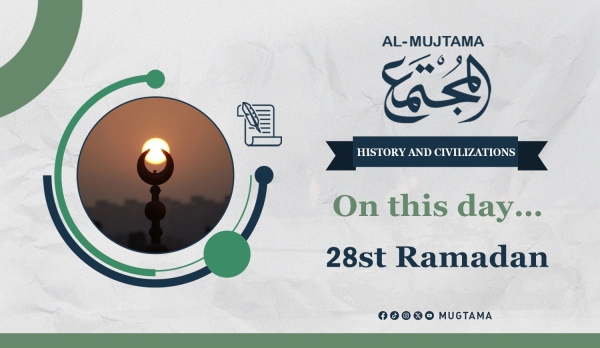Thaqif Accepts Islam
On the 28th of Ramadan in 9 AH (January 1, 631 CE), the Thaqif tribe of Ta'if accepted Islam, a significant milestone in the unification of the Arabian Peninsula under monotheism. This event followed years of resistance from the Thaqif, who were among the most prominent tribes in Arabia.
Acknowledging the growing influence of Islam, the Thaqif sent a delegation of six leaders to Medina to negotiate their conversion. The Prophet Muhammad (peace be upon him) warmly received them, providing them with an opportunity to observe the Muslim way of life, including prayers and Quranic recitation.
The delegation initially sought exemptions from some obligations, notably the destruction of their idol, Al-Lat. However, the Prophet firmly stood by Islam's monotheistic principles, rejecting any compromises. Through his wisdom and persistence, the delegation eventually embraced Islam. Among them, Uthman ibn Abi al-As displayed remarkable enthusiasm for learning about the religion and was later appointed as the imam for his people.
After their return to Ta'if, the Thaqif tribe demolished Al-Lat, symbolizing their complete submission to Islam. This act marked the end of idolatry in their region and further strengthened the unity of the Muslim community.
This event demonstrated the Prophet's ability to guide even the staunchest of opponents toward Islam, fostering unity and consolidating the Islamic faith across the Arabian Peninsula.
Muslim Victory in the Battle of Shadhuna:
On the 28th of Ramadan, 92 AH (July 18, 711 CE), the Battle of Shadhuna, also known as the Battle of the Valley of Lakka, marked a key moment in Islamic history. The battle was part of the Muslim campaign to expand into the Iberian Peninsula under the leadership of Tariq ibn Ziyad.
Tariq ibn Ziyad commanded the Muslim forces, who were strategically astute but significantly outnumbered. Opposing them was King Roderic, leading the Visigothic army. The battle showcased the determination and tactical brilliance of Tariq and his soldiers.
Despite the odds, the Muslims achieved a decisive victory. This triumph paved the way for Islam to enter Spain, initiating a new era of cultural and intellectual flourishing under the Muslim state of Al-Andalus, which lasted for eight centuries.
The victory at Shadhuna not only demonstrated the military strength of the Muslim forces but also symbolized the beginning of an Islamic influence that shaped Spain's history and contributed greatly to the progress of European civilization.
